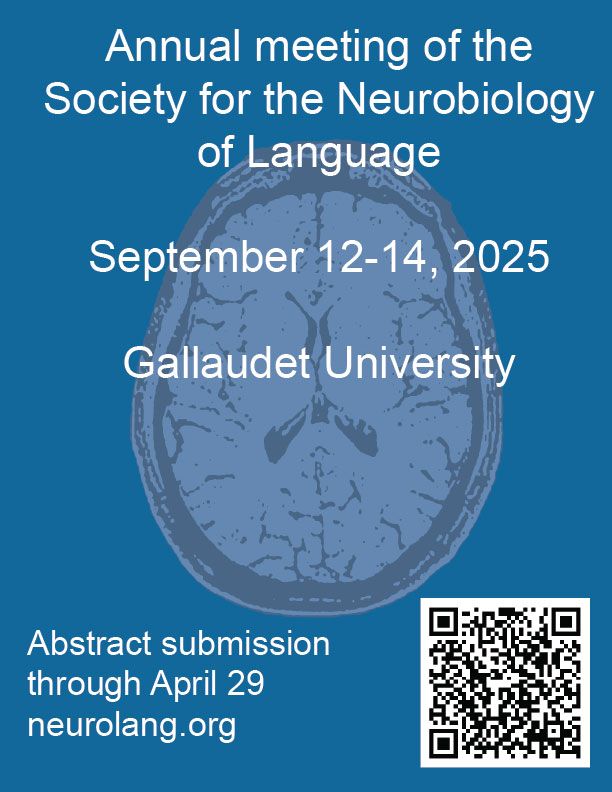
#neuroscienceoflanguage

#neuroscienceoflanguage
Abstract submissions are open! Hope to see you there! #SNL2025
2025.neurolang.org/abstract-sub...

#neuroscienceoflanguage
jonathanpeelle.net/the-neurosci...
#neuroscienceoflanguage
jonathanpeelle.net/the-neurosci...
academic.oup.com/brain/articl...
academic.oup.com/brain/articl...
#neuroscienceoflanguage
First thing in the morning: “I’m hungry for dinner!”
In the evening: “What’s for breakfast?”
I hope she figures it out eventually.
#neuroscienceoflanguage

#neuroscienceoflanguage
#neuroscienceoflanguage
jonathanpeelle.net/the-neurosci...
#neuroscienceoflanguage
#neuroscienceoflanguage

#neuroscienceoflanguage
#BCBL has new PhD positions available for you!
🔸 1 PhD – #Neurolinguistics and #Aphasia Group
🔸 1 PhD – #PerceptualInference Group
🔸 1 PhD – #BrainRhythms and #Cognition Group
The application deadline is soon!
+info 👇
www.bcbl.eu/es/unete-a-n...

So, this is the first figure in my book, and informs the rest. 🧵
#neuroscienceoflanguage

So, this is the first figure in my book, and informs the rest. 🧵
#neuroscienceoflanguage
#neuroscienceoflanguage
(6/6)
journals.sagepub.com/doi/abs/10.1...

#neuroscienceoflanguage
#neuroscienceoflanguage #neuroskyence
peellelab.org/join
#neuroscienceoflanguage #neuroskyence
peellelab.org/join

